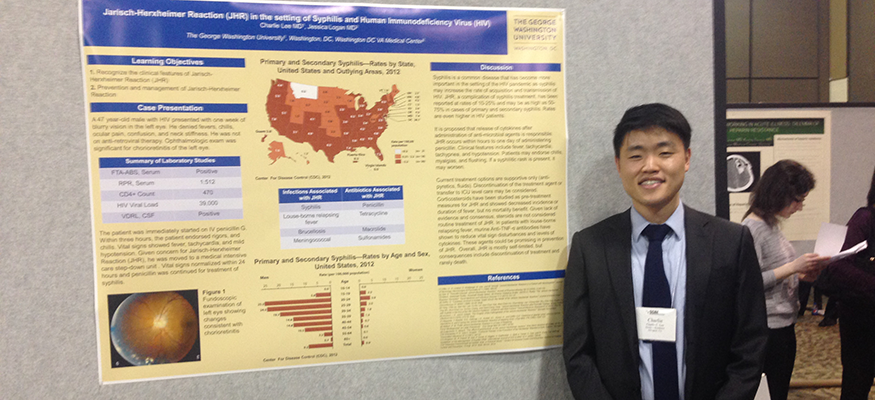
An abstract is a very concise statement of the major elements of your research project or clinical vignette. It states the purpose, methods, and findings of your research project, or the learning objectives, concise case presentation and discussion of your clinical vignette. As such, writing an abstract is the begining of the publishing process.
Send a copy of every abstract you submit to the program director and program coordinator for your file and to meet the scholarly activity requirement! We are happy to give you editing input as well!
Resources for research abstracts
- ACP's "Writing a Research Abstract"
- Scientific Abstract Checklist
- Example of a Research Abstract
- How to Write an Abstract, by Philip Koopman, from The Carnegie Mellon University, Pittsburgh, PA
Resources for clinical vignettes
- ACP's "Writing a Clinical Vignette (Case Report) Abstract"
- Clinical Vignette Abstract Checklist
- Example of a Clinical Vignette Abstract
Resources for Case Reports
- Writing a Clinical Case Report, an interactive presentation from the University of Texas.
- How to Write a Case Report, by Laine H. McCarthy and Kathryn Reilly from the Department of Family and Preventive Medicine, University of Oklahoma Health Sciences Center.
- How to Write a Case Report, by Rahij Anwar locum registrar in trauma and orthopaedics, Royal London Hospital, Bexleyheath, London.
Common Pitfalls of Writing....and How to Avoid Them
- 1. Attempting to appear scholarly at the expense of clarity
-
While you want to have a scholarly tone in your paper, do not try to achieve this with overly long sentences or overly advanced vocabulary. Read your work out loud, which can help you find (and fix) run-on sentences. If you can say it clearly in 5 words, don't use 10 (unless they add substance)! A good rule is that any word that does not add to your writing necessarily detracts from it. Use simple words that convey the argument clearly, and consider avoiding passive tense unless explicity requested. Ask a trusted friend, colleague, or attending to read it for you and offer edits.
- 2. Having too much background information
-
While it is important to give enough background information to bring your reader up to speed, your focus should be on methods, analysis and discussion. Know the baseline level of knowledge of your readers.
- 3. Sounding more like speeches than scholarly essays
-
Abstracts should not sound conversational. They should be academic. Do not use sentence fragments or casual words. You can identify this by reading it out loud, and asking a trusted friend, colleague or attending to read it for you.
- 4. Procrastinating
-
Forcing yourself into a corner where you have to write quickly (as the deadline approaches) will not improve your writing, and will likely worsen your final product! Good writing takes time, and takes several drafts with subsequent rounds of edits. Start by simply writing the introductory paragraph or if you are having trouble, try writing for short stints, like 15 minutes at a time.
- 5. Becoming attached to your draft
-
Sometimes it's best to ditch the first draft and start fresh with the lessons you have learned since writing the first draft. Be open to edits, and you will have them each time you read the paper (as will the friends, colleagues and attendings you ask for input!).
- 6. Writing without a clear thesis
-
Sometimes this is not a pitfall if you are preliminarily writing to brainstorm. If you are writing a draft, have a clear thesis for each paragraph. If you are writing a clinical vignette, have 2-3 clear learning objectives in mind and clearly convey those to your readers in your discussion section.
- 7. Non-analysis/non-interpretation
-
When analyzing or interpreting something you must say three things: what, how, and why. State the facts of the case or background (what), elucidate the mechanism or methods (how), and state why is this important/meaningful/relevant. Do not assume your reader knows the significance of what you are presenting - make the meaning/importance explicit!
- 8. Lack of Confidence
-
Have confidence in the information you present - if you have done your due diligence in literature review and learning about the topic yourself, then you are a local expert on this topic! Be clear where you are stating facts versus opinions. Asking a trusted friend, colleague or attending to review your work can help you figure out if you've gone too far in your ideas or suppositions.